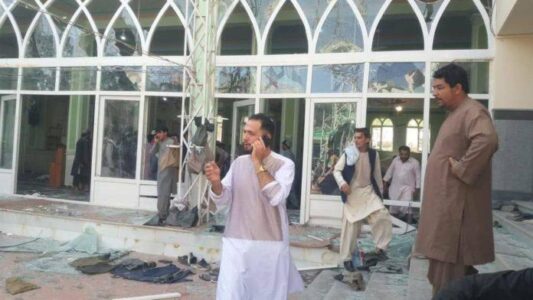
Who keeps attacking mosques and minorities in Afghanistan
Ever since the U.S.-led occupation of Afghanistan ended in August 2021 there have been a number of deadly terrorist attacks on mosques and religious minorities in the country. 5Pillars asked ordinary Afghans who is behind the attacks and what is their agenda?
Last week a suicide attack on an education centre in western Kabul claimed the lives of more than 60 people (mostly Shia Muslim women from the Hazara minority) and wounded 110 others.
The bombing appeared to be the latest in a series of attacks to divide Afghans and undermine the Islamic Emirate’s claim to have restored peace and security.
Some of the other attacks have included:
An attack on a Muharram event in Kabul in August which killed eight Shia Muslims.
The killing of a prominent Salafi scholar in Kabul in July.
An assault on a Sikh prayer site in Afghanistan in June which left one worshipper and an Islamic Emirate soldier dead, as well as the unidentified attackers.
An attack on a Shia mosque in Kandahar last October which killed 47 worshippers.
ISIS-K, Afghanistan’s version of ISIS, has claimed responsibility for some of the attacks but not all of them. For example, no group has claimed responsibility for the latest attack on the Kaj Education Centre last week.
Protests have been held in many provinces of Afghanistan – such as Herat, Bamiyan, Balkh and Nangarhar – against the suicide attack on the Kaj education centre, as well as the targeting of Hazara areas, with the slogan being chanted: “I am Pashtun Hazara.”
Speculation about who is behind the attacks is rife on the streets of Kabul. Some blame the Americans or the Indians who may have infiltrated ISIS-K as revenge for their strategic defeat in Afghanistan. Others point the finger at the Islamic Emirate itself because the nature of the attacks resemble Taliban attacks on occupation forces from 2001-2021 (although the question of motive is unanswered here).
Islamic Emirate officials have said the perpetrators are enemies of Islam and the country. “Attacking civilian targets proves the enemy’s inhuman oppression and failure to meet moral standards,” Interior Ministry spokesman Abdul Nafi Takour said.
Religious scholars and tribal elders in Kandahar have said that the attack on a particular tribe (Shia Hazaras) is of an “intelligence nature” and that they are being carried out to separate Afghans.
Afghan national Mangal Najibullah told 5Pillars: “There has been no genocide against any tribe in Afghanistan, apart from two cases – the Massacre of Afshar and Dasht-e Lili. The rest are all terrorist cases which have affected all ethnicities; even Hindus have been affected.”
“This is an ugly act against knowledge and humanity,” said Mohammad, a Kabul resident.
“Stop this genocide. If it is Daesh or Taliban, the Taliban are responsible for this action and if it is not the work of the Taliban, they should provide security,” said Hussain Ali, a resident of mainly Shia Dasht-e-Barchi area.
Azgar, a school teacher, told 5Pillars: We don’t know if this is Taliban or Daesh because it was mostly Taliban responsible for attacks during the Republic, but while power is in the hands of the Taliban, can it be someone else?”
And Hekmat Popal said: “The people of Afghanistan do not understand who is behind this, but I think someone wants the Hazara tribe to rebel against the Taliban.”
Source: 5pillarsuk





